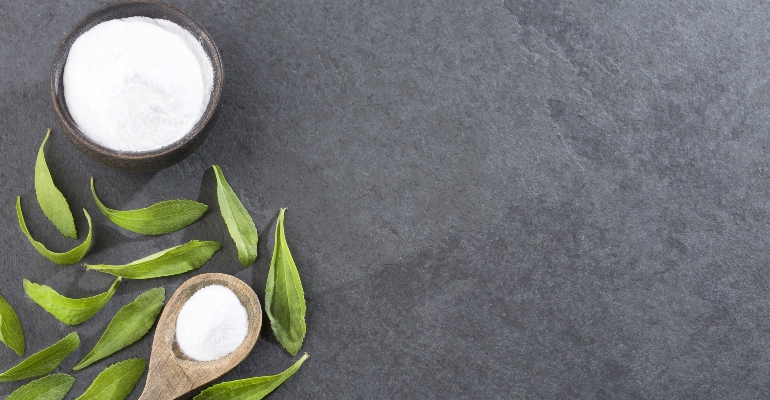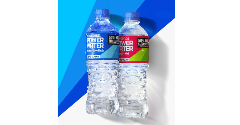News
Codex approves global framework for stevia production
21 Jan 2022Codex Alimentarius has adopted a Framework for Steviol Glycosides approving four different technologies for the production of the sweetener, a move that stakeholders say will ‘benefit the entire stevia industry’.
The Framework for Steviol Glycosides now approves four production technologies for steviol glycosides that are made via extraction, bioconversion, fermentation and glycolysation.

While manufacturers using extracted stevia can leverage a more natural positioning, the best-tasting molecules, such as rebaudioside M, exist in tiny quantities in the stevia leaf, while other rebaudioside molecules have unpleasant aftertaste. These cost and taste issues have held back uptake of stevia and led to significant R&D efforts in recent years to develop alternative methods for producing so-called ‘next generation’ steviol glycosides.
Producing stevia via fermentation, for instance, allow suppliers to select and produce large quantities of only the best-tasting rebaudioside molecules. This means they can produce at scale stevia molecules that have a reduced bitterness and liquorice aftertaste and have a taste profile similar to that of sugar.
Similarly, producing stevia via bioconversion (also known as enzymatic conversion) involves using genetically modified yeast to scale up the best-tasting rebaudioside molecules found in the stevia leaf although the GM yeast is not present in the final ingredient. Last year, the European Commission approved use of the enzymatically converted stevia molecule, Reb M, for the EU.
The adoption of the Codex framework was welcomed by Washington, DC-headquartered trade association, the International Stevia Council (ISC), which said it would open more markets for the use of stevia.
Maria Teresa Scardigli, executive director of the ISC, said the Council was “instrumental” in getting this new Codex framework approved.
“The Framework approach ensures that business operators can put steviol glycosides produced through their various technologies on the market without submitting new dossiers, provided they fulfill the defined criteria and specifications per technology,” she said. “This is based on the authorities’ review of the production technology, ensuring the highest level of safety, purity and quality is achieved for the final steviol glycoside ingredient put on the market.”
Product launch activity
According to figures from Innova Market Insights, global product launches using stevia have increased by a compound annual growth rate (CAGR) of 21.9% over the past 10 years for the 2011 to 2021 period, with the majority of product launches occurring in North America, Asia and Western Europe.
Data from Innova shows that global product launches with stevia have increased by 21.9% CAGR over the past 10 years (2011-2021), the majority of product launches have taken place in North America, Asia and Western Europe.
Mintel data shows that almost 80% of food, drink and supplement launches in the five years previous to October 2021 that contain Reb M are in the US, followed by approximately 10% in Puerto Rico. Major brands such as Chobani and Halo Top use Reb M in their products.
Product launch activity in other regions, such as Eastern Europe, Australasia, Africa and the Middle East, is increasing at an even faster rate – more than 35% - for the same period, according to figures cited by the ISC.
Related news

Oat Barista: Innovation for game-changing beverages
20 Nov 2025
Oat Barista is a clean label, sustainable, and innovative drink base specifically designed to create the perfect foam in one single ingredient.
Read more
How younger consumers are redefining ingredient choices and rejecting brand loyalty
18 Nov 2025
Gen Z and millennial consumers’ preferences for transparency, functionality, and purpose are “redefining the very nature of consumption itself”, says SPINS.
Read more
Hybrid formats and flexible positioning to disrupt category norms in 2026
17 Nov 2025
Trend forecasters expect food and drink to move more fluidly across occasions, functions, and formats as consumers seek versatility, novelty, and convenience.
Read more
Danone highlights digestive health as potential ‘tipping point’ for food industry
13 Nov 2025
Danone is betting on a food industry “tipping point” that will bloat the market for healthy products, particularly those related to gut health.
Read more
New UPF standard hoped to offer consumers ‘coherence and clarity’
10 Nov 2025
Ingredients companies are being urged to enter “a new era of partnership and innovation” following the launch of the industry’s first non-UPF verification scheme.
Read more
Faravelli at Fi Europe: Showcasing FARA® functional solutions for food and nutra
28 Oct 2025
At Fi Europe 2025 in Paris (stand 72M39), Faravelli showcases FARA® Customized Functional Solutions and a wide ingredient portfolio for food and nutra – delivering quality, innovation, and expertise.
Read more
Agrigum Redefined FIBER
27 Oct 2025
Agrigum has transformed gum acacia into a natural, science-backed fibre that supports gut health, sustainability, and innovation across global food and nutrition applications.
Read more
Expanding boundaries in food & beverage innovation
23 Oct 2025
IMCD and FrieslandCampina Professional expand partnership to deliver Kievit® across EMEA, enabling brands to enhance quality and accelerate time-to-market for tomorrow’s food & beverage creations.
Read more
Amazon Grocery launch aims to balance quality with affordability
22 Oct 2025
Global e-commerce giant Amazon has introduced a new private-label food brand, combining existing Amazon Fresh and Happy Belly products with new everyday items.
Read more
Powerade enters hydration space with launch of Power Water
21 Oct 2025
Coca-Cola’s Powerade brand has launched a zero-sugar, electrolyte-enhanced functional water, marking the brand's entry into the hydration space.
Read more